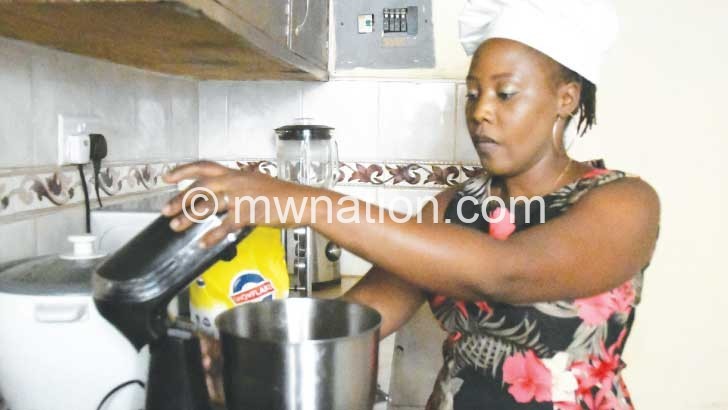Conquering breast cancer
As part of the Breast Cancer Awareness Month, our News Analyst MERCY MALIKWA engages a survivor on her struggle against the third commonest cancer among Malawian women.
Five years ago, Mphatso Chibambo felt a lump in her right breast, but ignored it.
The mother of three, a chef who runs a catering business in Blantyre, says the lump sporadically disappeared but kept reappearing.
However, a sudden pain in the breast jolted her to seek medical care.
She recalls: “I wasn’t feeling the pain daily, but it was too painful every time it reoccurred. I just had to go to the hospital.”

In August 2015, she went for scanning at Queen Elizabeth Central Hospital (QECH) and doctors referred her to Mwaiwathu Private Hospital to give breast tissue for closer examination.
“The biopsy sample sent to College of Medicine confirmed that I had stage-three breast cancer. I was shocked. When I was going to the hospital, I never thought I was experiencing breast cancer,” she says.
Living postively
Chibambo stayed positive throughout her treatment which started with surgical removal of the breast.
After the surgery, she underwent six cycles of chemotherapy spaced three weeks apart.
“Then I was on attachment at Protea Ryalls Hotel in Blantyre. My colleagues told me chemotherapy can be painful, I prayed for serenity to accept things I could not change,” she says.
Throughout, the survivor says, there was no single day she was bedridden or missed treatment.
“On some days, I was mixing my chemotherapy sessions with work,” she states.
After four months of treatment, Chibambo started losing hair to chemotherapy, but she regained it after completion of treatment. The survivor now wears dreadlocks.
Medical trips
For three months, Chibambo underwent 25 cycles of radiotherapy in Tanzania. The use of high-energy light rays to destroy cancer is not available in Malawi.
She says: “The radiotherapy was supposed to be followed by hormonal medicine for five to 10 years. Fortunately, after running tests, doctors told me I no longer needed the long-term medicine.
“However, I still go for routine check-ups. At first, I was going every three months, then six months and now a year.”
Chibambo’s husband, James, says: “My wife is a firm believer in God. She quickly accepted the diagnosis and this made it easy for the family to support her throughout the lengthy treatment.
“Sometimes, it was the people around her, including me, who were feeling the pain on her behalf.”
Many women find it hard to accept the third commonest cancer in Malawian women, especially the thought of living without a breast.
“It is difficult for someone who was used to having two breasts to wake up without one someday. However, it is better to have an organ removed and still be alive,” says the survivor.
Chibambo urges people of goodwill to donate artificial breasts and bras to maintain the dignity of women who have had their breasts removed like hers.
Cancer doctor Leo Masamba, from QECH, says breast cancer treatment varies according to patient features and cancer type.
He explains: “The treatment period may range from five months to a year or, at times, with 10-year follow-up medications. Based on cancer type and patient features, hormonal drugs may be used.
“There are also new but more expensive drugs that may be utilised depending on advanced testing . On top of this, radiotherapy may be recommended for other patients.”
Still costly
However, Masamba says it is challenging to treat cancer in Malawi due to lack of advanced laboratory testing and shortage of specialist doctors or surgeons.
“Apart from lack of radiotherapy, basic testing is only available in a very limited way in Lilongwe and Blantyre, so it remains expensive to most Malawians.
“Then there is lack of modern drugs, such as Herceptin which is only accessed by wealthy patients, coupled with lack of radiotherapy,” he says.
The oncologist says existing cancer departments in main hospitals are extremely poorly funded and supported to offer quality care.
“Usually, few nurses and doctors are assigned to these units compared to the workload and complexity of cancer treatment,” he states.
Hope in sight Chibambo hopes that the National Cancer Treatment Centre at Kamuzu Central Hospital in Lilongwe will remove the extra costs patients pay to get treatment abroad.
Ministry of Health spokesperson Joshua Malango says Treasury has released about K2.4 billion towards works and function of the centre, currently providing chemotherapy to both children and adults.





